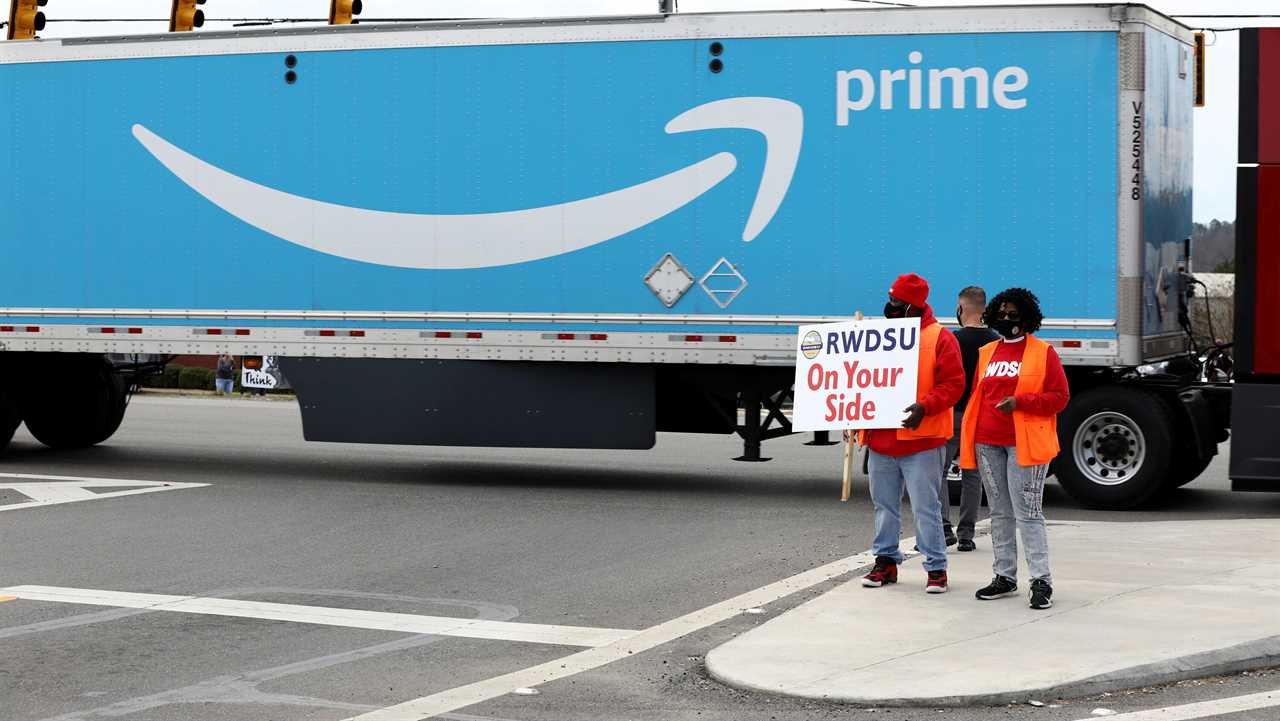
The most closely watched union election in recent history is underway in Alabama, where almost 6,000 workers at an Amazon warehouse near Birmingham are voting on whether they want to form a union. The election has attracted attention from President Biden, N.F.L. players and Hollywood actors, making it a high-stakes test of whether a union has a role in one of the country’s biggest employers.
The unionization effort, which began last summer, is the largest and most viable organizing campaign among Amazon workers in the United States. Here is what you need to know about it.
Who are the workers behind it?
The unionization push came from a group of largely Black workers at the Amazon fulfillment center in Bessemer, Ala., which is just outside Birmingham. Late last summer, they approached a local branch of the Retail, Wholesale and Department Store Union, which has grown in the South, particularly in poultry, an industry with traditionally dangerous jobs and many Black employees.
The union deployed organizers who worked at nearby warehouses and poultry farms to focus full time on talking to workers at the Amazon warehouse. By late December, more than 2,000 workers signed cards indicating they wanted an election, the union said. The National Labor Relations Board determined that those signatures signaled “sufficient” interest in holding a vote.
Why is this happening now?
Two big forces have helped drive the unionization effort: the pandemic’s focus on essential workers and the racial reckoning brought on by Black Lives Matter protests.
Amazon opened the Bessemer warehouse in March 2020, just as the coronavirus was taking hold in America. The pandemic made clear the critical role essential workers, many of whom were Black and paid hourly, played in serving customers and the economy broadly. Amazon had extraordinary growth last year, as people turned to online shopping instead of venturing into stores. It went on a huge hiring spree, ending the year with 1.3 million employees and $386 billion in sales.
In early summer, George Floyd’s killing prompted calls for racial justice, and the union has focused its organizing on issues of racial equality and empowerment. It has a decades-long history of working on civil rights and labor issues in the region. Around the same time, Amazon ended the extra pay it had given workers earlier in the pandemic. The workers who started the organizing said their pay was not commensurate with the risks they took and the productivity they must maintain.
What is Amazon’s position?
Amazon has said it does not believe the union represents the views of a majority of its workers and that it would disrupt the direct relationship the company has with employees. Amazon plays up its minimum wage of $15 an hour, plus benefits like health care and parental leave. The minimum wage in Alabama is $7.25 an hour.
In its communications with workers, through signs plastered in bathroom stalls, a website and mailers, Amazon has said the union’s dues would leave workers with less money for things they want or need, like school supplies. It does not mention that in Alabama, a “right to work” state, paying dues is optional.
How does voting happen?
Amazon wanted the voting to happen in person, as is typical, but the National Labor Relations Board found that the pandemic made it too risky and ordered a mail-in election. The ballots were mailed out to workers in early February and must be signed and received by the labor board by March 30, when they will start to be counted. Because both sides can dispute votes, there is a chance final tally may not be announced for days or weeks after the counting begins.
The labor board will recognize the union if a majority of votes cast are in favor of it.
Did you miss our previous article...
https://trendinginthenews.com/tech-giants/what-the-us-missed-with-google






